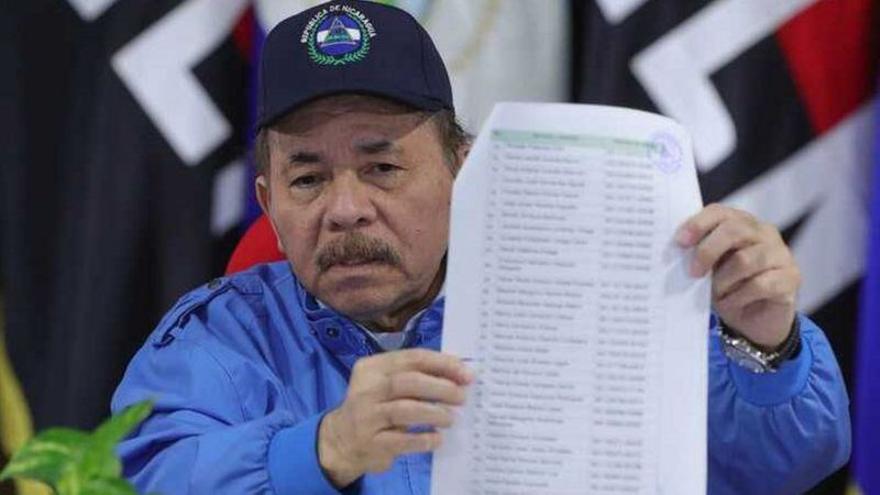
![]() 14ymedio/EFE, San José, 19 December 2023 — The NGO Collective of Human Rights Nicaragua Nunca Más [Never Again] warned on Monday about “a new method of repression” implemented by the government of Daniel Ortega against critics and opponents, which consists of prohibiting them from entering the country when they leave on a trip and seek to return.
14ymedio/EFE, San José, 19 December 2023 — The NGO Collective of Human Rights Nicaragua Nunca Más [Never Again] warned on Monday about “a new method of repression” implemented by the government of Daniel Ortega against critics and opponents, which consists of prohibiting them from entering the country when they leave on a trip and seek to return.
“This Collective wants to warn of a new method of repression, a de facto statelessness, derived from the unfounded refusal not to allow Nicaraguans to enter their homeland because they are people considered traitors to the government, or for the simple fact of being relatives of people released from prison, journalists, mothers of murdered people and human rights defenders,” the organization said in a statement.
The last public case was that of Ana Salinas, sister of the exiled Nicaraguan journalist and writer Carlos Salinas Maldonado, author of a book about the vice president of Nicaragua, Rosario Murillo, who was unable to return to her country last Friday due to the refusal of the Sandinista government, according to the platform Alertas Libertad de Prensa Nicaragua, which documents cases of violations of freedom of expression and the press.
The Nicaraguan authorities for Migration and Aliens do not usually give explanations about that measure
The Nicaraguan authorities for Migration and Aliens, who are responsible for notifying airlines and land transport about the prohibition to Nicaraguan travelers, do not usually give explanations about that measure.
“To this pattern must be added those whose passport is snatched by officials and repressive forces of the regime, leaving them undocumented and without any protection,” continued the statement from the Collective, composed mostly of Nicaraguan activists exiled and based in San José.
“De facto statelessness is a new form of repression that generates serious human rights violations, forces people into exile and annuls the legal personality of those who suffer from it,” the NGO explained.
According to the statement, “even with these repeated violations, people in exile have bet on resilience as a form of resistance to the dictatorship, and new organizations, media and ventures in exile have been founded for subsistence.”
However, it noted that the banished Nicaraguans “continue to suffer obstacles to access formal sources of employment, health, education and other elements necessary to have a dignified life.”
The Collective asked the international community to “continue to take steps to demand the cessation of repression and exile”
For this reason, the Collective asked the international community to “continue to demand the cessation of repression, exile and forced displacement that destroys families and lives and subjects Nicaragua to a constant situation of serious human rights violations.”
Nicaragua has been going through a political and social crisis since April 2018, accentuated after the November 2021 elections, in which Ortega was re-elected for a fifth term, fourth in a row and second with his wife, Rosario Murillo, as vice president, with his main opponents in prison or in exile.
The method described by the NGO has also been used in Cuba to banish activists and intellectuals who openly oppose the Havana regime and have some public support. With the disappearance of opponents from the national stage, the Cuban Government intends for their activism to be diluted in exile.
The most known cases of expulsions from the country with the prohibition to return are those of the artist Tania Bruguera, who negotiated her departure in exchange for the release of a group of political prisoners; Anamely Ramos, who is prohibited from returning to the island; Hamlet Lavastida, who was taken to the airport and banished after spending three months in prison, and journalist Karla Pérez, who was denied entry into the country in 2021.
Translated by Regina Anavy
____________
COLLABORATE WITH OUR WORK: The 14ymedio team is committed to practicing serious journalism that reflects Cuba’s reality in all its depth. Thank you for joining us on this long journey. We invite you to continue supporting us by becoming a member of 14ymedio now. Together we can continue transforming journalism in Cuba.
